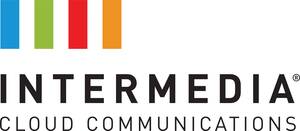Department of State Program Enhances Understanding, Appreciation for America and Americans Among Youth From Islamic Countries
WASHINGTON, March 4 /PRNewswire-USNewswire/ -- InterMedia was contracted by the Evaluation Division in the Bureau of Educational and Cultural Affairs at the U.S. Department of State to complete a five-year evaluation of an innovative high school student exchange program -- the Youth Exchange and Study (YES) Program -- established in the aftermath of September 11. Since 2003, more than 3,480 students from 25 countries with significant Muslim populations -- Afghanistan, Indonesia, Egypt, Pakistan, Palestine, Malaysia and Yemen among the best-represented -- have taken part in the program, which provides scholarships for secondary school students 15-17. Students spend up to a full academic year in towns and cities throughout the United States to attend high school, engage in activities to learn about American society and values, acquire leadership skills, and to share their customs and culture with Americans.
The evaluation found the YES program enhanced their leadership skills and their understanding of and appreciation for American culture. "It was truly amazing to witness the growth these already impressive students experienced during their year in the U.S.," says Susan Gigli, InterMedia's Chief Operating Officer, who directed the evaluation. "Their insights, maturity, empathy and sense of empowerment underscored the mind-expanding nature of their experience and their readiness to take on challenges at home -- a key reason why exchanges continue to be such an effective instrument in the public diplomacy toolbox."
The full report and an executive summary of the evaluation, issued by ECA's Evaluation Division, are available on the ECA website.
The study consistently found that the program was a highly positive experience for a significant majority of participants; also, the benefits of the experience carried over after the participants returned home. One year later, YES participants emerged from the program with:
- Sharply increased knowledge and understanding of U.S. politics and government (95 percent), U.S. economy (95 percent), U.S. culture (98 percent) and the American people (99 percent);
- A more favorable view of U.S. politics and government (62 percent), U.S. economy (68 percent), and the American people (94 percent);
- Deepened and more nuanced understanding of and reflection on their own countries, as well as the roles and rights of individuals in society;
- Remarkable increases in self confidence and vastly improved leadership skills (from 30 to 60 percentage points reported gains in abilities such as self reliance and independence, speaking English, being open-minded and tolerant, speaking in public, leading a team and motivating others, and solving problems);
- A heightened sense of empowerment that they can affect change in their communities and beyond (nine in 10 believe they have many choices in their lives, they can make a difference in their family, and they can influence people around them), with particular gains among the female participants;
- A desire to discuss and share their exchange experiences in their home countries upon return (for example, nine in 10 had more than 10 discussions with family and friends, eight in 10 held at least one formal presentation at school, six in 10 gave at least one media interview, and five in 10 gave at least one formal presentation in a religious setting), with the reported result that their family and friends now understand the United States and the American people better (91 percent) and view them more positively, as well (85 percent);
- Continued involvement in community service and alumni activities one year after the program (an average of 81 percent), playing greater leadership roles (leading events, training others, planning activities); and
- Ongoing ties to their U.S. host families, friends, teachers and mentors they met during their exchange experience.
The evaluation was unique in its longitudinal nature and involvement of approximately 1,800 students. Each of the initial four annual cohorts of YES students were surveyed three times -- before they left their home countries, again near the end of their year in the U.S., and then a third time a year after they returned home. Focus groups with selected students before they returned home helped deepen understanding of how participants' thinking and behavior changed as a result of the program.
It yielded consistent and positive findings on the impact the Department of State's YES Program had on participants' lives and on the effectiveness of the program in achieving its goals of increasing knowledge and understanding, developing leadership skills, and fostering linkages.
The evaluation was a unique and successful collaboration between multiple stakeholders: the Youth Programs Division of ECA, the Evaluation Division of ECA, the implementing exchange organizations in the U.S. and abroad, InterMedia, and the YES students and alumni.
"While there was no formal requirement to see whether Americans' understanding of YES participants' home countries and cultures had correspondingly increased, it was evident from participants' responses throughout the study that their frequent interactions and discussions with host families, American students and teachers and others, had left a lasting impact," said Gigli.
InterMedia is a leading international communications and media research, evaluation and consulting organization creatively equipping clients to understand their audiences, gauge their effectiveness and target their communications in transitional and developing societies worldwide. Based in Washington, D.C., London, UK, and active year-round in more than 60 countries, InterMedia helps clients understand complex issues in challenging research environments. The company's strengths include its people -- area experts skilled in scientifically-based research and focused on client solutions -- its vast global network of local research partners and contacts and its rich data archive of nearly 700 media and opinion surveys conducted on behalf of the U.S. government over the past 14 years.
The Evaluation Division at the Bureau of Educational and Cultural Affairs, Department of State is a leader in the Department on evaluation and performance measurement initiatives. The Evaluation Division uses mixed-methods and innovative analytical approaches to design and implement outcome and impact evaluations of ECA's educational and cultural exchange programs, and to help program officers and partners improve efficiency and effectiveness.
For more information, contact Alex Wooley, InterMedia's vice president of communications and development, at 202-434-9332, or at [email protected] or Robin Silver, Chief of Evaluation, Evaluation Division, Department of State, at 202-632-6319, [email protected].
A listing of completed evaluations can be found on the Evaluation Division website: http://exchanges.state.gov/programevaluations/completed.html.
For an account of a Moroccan student's stay in the U.S., published in The Huffington Post this past year, visit: http://www.huffingtonpost.com/imane-karroumi/the-exchange-experiencec_b_243895.html
SOURCE InterMedia
WANT YOUR COMPANY'S NEWS FEATURED ON PRNEWSWIRE.COM?
Newsrooms &
Influencers
Digital Media
Outlets
Journalists
Opted In






Share this article